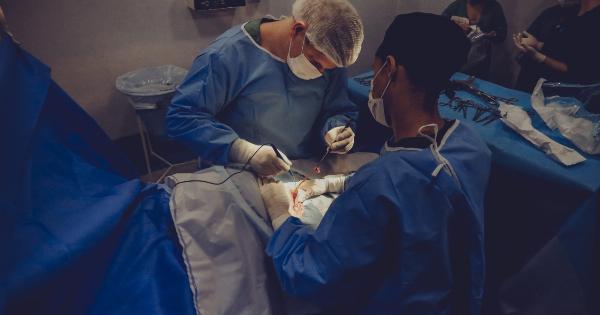Cholecystectomy is a surgical procedure that involves the removal of the gallbladder. It is often performed to alleviate symptoms associated with gallstones, such as abdominal pain, nausea, and vomiting.
While cholecystectomy is considered a relatively common procedure, it requires surgical expertise to ensure optimal outcomes for patients.
Surgical Techniques used in Cholecystectomy
There are two main surgical techniques used in cholecystectomy: laparoscopic cholecystectomy and open cholecystectomy.
Laparoscopic Cholecystectomy
Laparoscopic cholecystectomy is the most common approach for gallbladder removal. It is a minimally invasive procedure performed using a laparoscope, a thin tube with a camera and surgical instruments attached to it.
The surgeon makes several small incisions in the abdomen to insert the laparoscope and other instruments, allowing them to visualize and remove the gallbladder.
This technique offers numerous advantages over open cholecystectomy, including smaller incisions, reduced pain, shorter hospital stays, and faster recovery times.
However, it requires a high level of surgical expertise due to the need for precise instrument manipulation and visualization.
Open Cholecystectomy
Open cholecystectomy is a traditional surgical technique that involves a larger abdominal incision.
It is generally reserved for complex cases, such as when the gallbladder is severely inflamed or when there are complications during a laparoscopic procedure.
While open cholecystectomy may be associated with a longer recovery period and increased pain compared to laparoscopic cholecystectomy, it still requires surgical expertise to minimize complications and ensure a successful outcome.
The Role of Surgical Expertise in Minimizing Complications
Cholecystectomy, like any surgical procedure, carries certain risks. However, the risk of complications can be significantly reduced with the help of an experienced surgeon.
Identification and Management of Anomalies
An experienced surgeon is skilled at identifying any anatomical anomalies or variations that may complicate the procedure. This includes variations in the blood vessels, inflammation, or scarring from previous surgeries.
By recognizing these anomalies, the surgeon can modify their technique accordingly and minimize the risk of damage to surrounding organs or structures.
Efficient Surgical Technique
Surgical expertise plays a crucial role in performing an efficient cholecystectomy. A skilled surgeon can maneuver the laparoscope and instruments effectively, minimizing tissue trauma and bleeding.
This results in a quicker procedure, reducing the patient’s exposure to anesthesia and overall operative time.
Reduced Risk of Bile Duct Injury
Bile duct injury is a rare but serious complication of cholecystectomy.
An experienced surgeon is well-versed in the anatomy of the bile ducts and can perform the procedure with precision, reducing the risk of accidental injury to these delicate structures. They can also quickly identify any injuries during the procedure and initiate appropriate repairs promptly.
Management of Bleeding and Other Complications
Cholecystectomy involves manipulating and dissecting tissues, which can lead to bleeding. An experienced surgeon is adept at managing bleeding effectively, ensuring hemostasis throughout the procedure.
They can also handle other potential complications, such as infections or bile leaks, should they arise during or after the surgery.
Postoperative Recovery and Follow-up
Even after a successful cholecystectomy, a patient’s recovery and follow-up care are crucial. An experienced surgeon can provide comprehensive postoperative instructions, monitor the patient’s progress, and address any concerns promptly.
They can also identify and manage any potential complications that may arise during the recovery period, ensuring optimal outcomes for the patient.
Conclusion
Cholecystectomy is a common surgical procedure performed to relieve symptoms associated with gallstones. The success of this procedure relies heavily on the expertise of the surgeon.
An experienced surgeon can navigate the complexities of the procedure, identify and manage any anomalies or complications, and ensure optimal outcomes for the patient. If you are considering cholecystectomy, it is vital to consult with a surgeon who has the necessary expertise in this field.




























